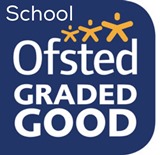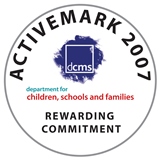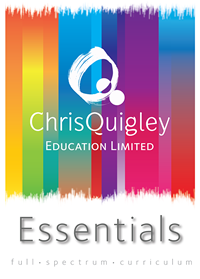Ofsted Outstanding! Yes, that's what we are!

New Ofsted report confirms ‘Outstanding’ grade for residential care.
Links to read the full report are within this newsfeed.
Mr Trimble (Head Teacher) and Mr Reid (Head of Care) were not only very pleased but also proud to receive the recent Ofsted report for residential care. The report had confirmed our own self evaluation that we were now outstanding in all areas of residential care. Mr Trimble has thanked all staff for their work in this area but particularly praised the Care Team for their hard work and commitment, to provide the very best possible experience for all of our residential pupils. It was also noted that pupil voice and parent comments featured strongly in the inspection process and report itself.
What inspection judgements mean: Outstanding
A school where the experiences and progress of children and young people consistently exceeds the standard of good and results in sustained progress and achievement. The outcomes achieved by children and young people are outstanding and the impact the boarding/residential provision has had in supporting this progress and achieving these outcomes is clearly evidenced.
To read the report in full, click the PDF link at the bottom of this page or CLICK HERE.
Quotes from the inspection
Children make exceptional progress in all areas of academic and emotional development from their starting point in this school.
All children are proud of their accommodation, they are keen to share it with visitors and unanimously talk positively about their experiences. One child said: ‘I want to stay here forever and ever. It is fun being here, I do not think they could do anything better.’
Staff respect individual identities, behaviours and characters; they use positive reinforcement and celebration of difference to allow children’s individual personalities to shine.
The head teacher, head of care and staff form a very strong and stable staff team. They strive to deliver the highest quality care and focus development of the provision on promoting purposeful achievement for all children. The joined up school and residential management and staff teams provide effective and attuned leadership and care across the provision.
The Head teacher invests in the residential provision. He uses continuous monitoring to inform future planning and expand on positive experiences for children. Children are encouraged to access the independent visitors and all children know how to do this.
Trusting relationships develop between all children and the stable care staff team. These are characterised by consistency, understanding, and warmth. These dependable relationships provide a stable base from which all children achieve.
Peer relationships are strong and staff support children to understand each other’s differences. Where children have trouble in their friendships, staff allow each child time to explore their feelings and the impact of their behaviours on each other.
Creative approaches to behaviour management complement more traditional responses Staff effectively safeguard children and carefully balance safety in a non-oppressive way to ensure that children enjoy a variety of life experiences when they begin boarding. This includes purposeful and fun activities in the community. Through these activities, children make a valid contribution to other’s lives, their social skills develop along with positive feelings of self-worth. An example of this is visits to a neighbouring home for older people where children read books to the residents.
A parent said: ‘My son has a fantastic opportunity here. He enjoys doing his homework and he is making really good progress. He is calmer. He is not confused, he likes the boarding routine. He likes boarding a lot and he is learning about how to look after himself. He is doing things he would not have done before.’
A parent said: ‘They have really helped me understand what is happening for my son; they involve me and don’t shut me out. I feel I am valued as a parent and my views count.’
Using consistent routines and responses, staff support children to identify their feelings and develop self-regulation skills. Where the head identifies gaps in services for children he appoints staff and fills service voids. This provides expedited access to specialist advice and support for home, school and the care team.
Children identify the risk of cyber bullying and meeting strangers during games, they play at home. They attribute this to staff helping them understand about internet dangers.
The business manager meticulously maintains records of recruitment within the school, and records in respect of people living on the school site. Robust agreements require non-school employees to adhere to a number of requirements, which focus on the protection of the children in the school.
The experienced governing body appropriately scrutinise and challenge decision making in the residential provision. They meet with children and understand the challenges children and leaders experience in a school with a residential provision.
One governor said: ‘The heads are constantly looking to improve, constantly asking what can we do next? They strive to make things better for children. Children come first and without a shadow of a doubt everybody here cares.’
The leadership team consult with staff, parents, carers, and children to inform improvement planning. The head teacher visits similar provisions outside of the school’s local authority to share experiences and learn from other’s positive practice models and successes. The recent recruitment of specialist staff and successful engagement of parents and carers continues to maximise the benefits to children in school and at home. A specialist member of staff said: ‘The school are being creative in engaging me, and there is healthy partnership working. They are looking at the best they can do for their pupils. They are completely focussed on the individual children.’







